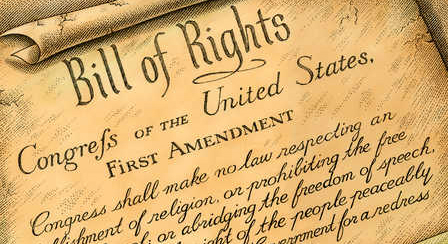Here are two readings about Civil Liberties and the Bill of Rights. Complete the reading and answer the questions. Information from these readings will be used in a quiz and or exam.
- What foundational principle does the author suggest is necessary for the Constitution, and how does this principle relate to the rights of future generations?
Consider the implications of having a clearly defined Bill of Rights as mentioned in the text. - According to the author, why is it surprising that the Constitution does not include explicit declarations of rights?
Reflect on the historical context provided by the author regarding other state constitutions. - How does the author connect the concept of public liberty to the actions of those in power throughout history?
Analyze the author’s argument about the necessity of barriers against governmental encroachment on individual freedoms.
Speech to add the Bill of Rights to the Constitution
- What reasons does James Madison provide for proposing a Bill of Rights?
Refer to specific phrases in the text that illustrate his motivations. - How does Madison address the concerns of those who were disaffected by the Constitution?
Identify the specific language he uses to acknowledge their feelings and motivations. - What does Madison suggest about the relationship between the ratification of the Constitution and public opinion?
Cite evidence from the text that supports your response. - In what ways does Madison attempt to reassure both supporters and opponents of the Constitution regarding their commitment to liberty?
Look for key phrases that reflect his intent to unify differing perspectives. - How does Madison use the term “jealousy” in relation to liberty, and what implications does this have for the understanding of civil rights?
Analyze the context in which he uses this term and its significance in the overall argument.
